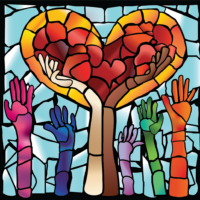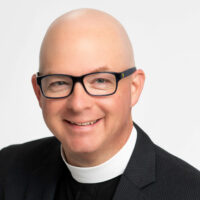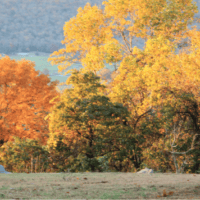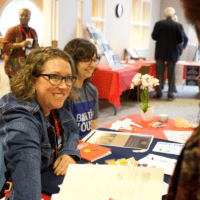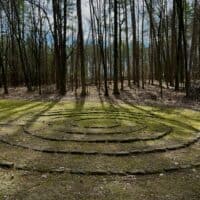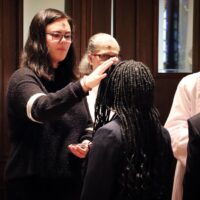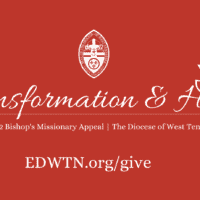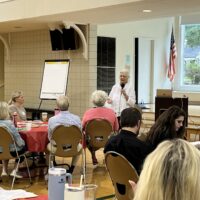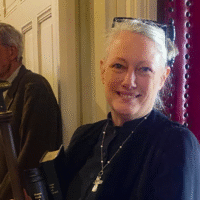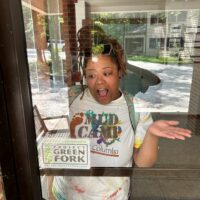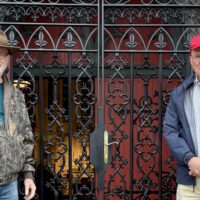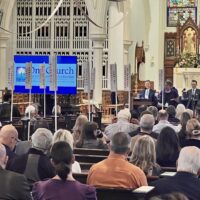I began to write this on the feast of St. Thomas. Thomas is the name I use for legal purposes. Except for an uncle who’s always called me Tommy, I’ve always been known as Tom.
During my days serving a church in Kansas, another name laid claim to me. It was given me by a Native American Episcopal priest, now of blessed memory. His Anglo name was Doyle, but first, he was Netamishkang: The One Who Goes Before His People.
Doyle was sent to me by a mutual friend. She had been his field ed supervisor during his seminary days. She fondly remembers Doyle’s gentle way of being and of preaching. It was like he was sitting by the fire, she says, telling stories.
Like Jesus.
Early on, in seminary, Doyle had this crystal clear sense of justice, examining everything through that loving lens. “He had a nose for justice and love, both micro and macro. For him, an injustice was just a failure to love,” my friend recalls. Love and justice in action for Doyle was as simple as this: paying the substitute childcare worker the same as the hired one.
Doyle came to Kansas to consult with both me, a new rector, and the also-new president of Haskell Indian Nations University. Together, along with leaders from the university and the parish, we entered discernment about creating a new position at HINU: an inter-tribal chaplaincy, offering prayer and care to students who came from more than 100 tribal nations.
One weekend, Doyle helped campus leaders hold a sweat lodge, a ceremony for cleansing body and soul. Due to a health issue, I arrived afterward for their time of food and fellowship. During that gathering a little Native American boy fell down, right in front of me, and cried. Without hesitating, I picked him up, held him, and tried to console him. It was the father in me. Doyle saw what I did.
After the new Haskell chaplain had been hired, my friend Netamishkang moved back to Minnesota, serving as priest alongside several Episcopal congregations there. He also served as diocesan Canon Missioner for Indian Work and Executive Director of the Episcopal Church’s Indigenous Theological Training Institute. Later Doyle became Chairman of the White Earth Reservation Tribal Council and Secretary for the Minnesota Chippewa Tribe.
Among his accomplishments, Doyle was particularly excited to have co-created events called “Healing of the Nations,” celebrating sobriety and encouraging a drug-and alcohol-free lifestyle. A master woodsman and fisherman, he would often call me from home while gazing out his window. “Sorry, Tom, I lost my train of thought. I was distracted by this deer.”
In addition to all those good things he did before he died, Doyle saw what I did with that little boy. He gave me a gift. As we said our last goodbye, he had a new name for me. Doyle said, “Tom, you are a Singer of Songs and a Lover of Children.”
I’m still a singer of songs. I’m grateful to be serving a small church with a choir whose director and members have invited me to sing with them. I’m grateful to be in a men’s community chorale again. I’m grateful for the words attributed to St. Augustine: “Those who sing pray twice.”
And I’m still a lover of children. I’m grateful to be a biological father and a father-and-grandfather-by-marriage. I’m grateful to be in mentoring relationships with young adults. I’m grateful for the prayerful words of Michel Quoist: “Help me to be like this child once more, to recapture your likeness and your life, now so deeply buried in my heart.”
Doyle, The One Who Goes Before His People, has gone to God. Yet he still reminds me of Aaron, Moses’ brother, who put on a bejeweled breastplate – each jewel representing one of the twelve tribes of Israel – whenever he went before God with his people on his heart (Exodus 28:15-29). Whatever names we’re given, may we – like Aaron, like Doyle – be given the heart wisdom to go before our people and our God.
